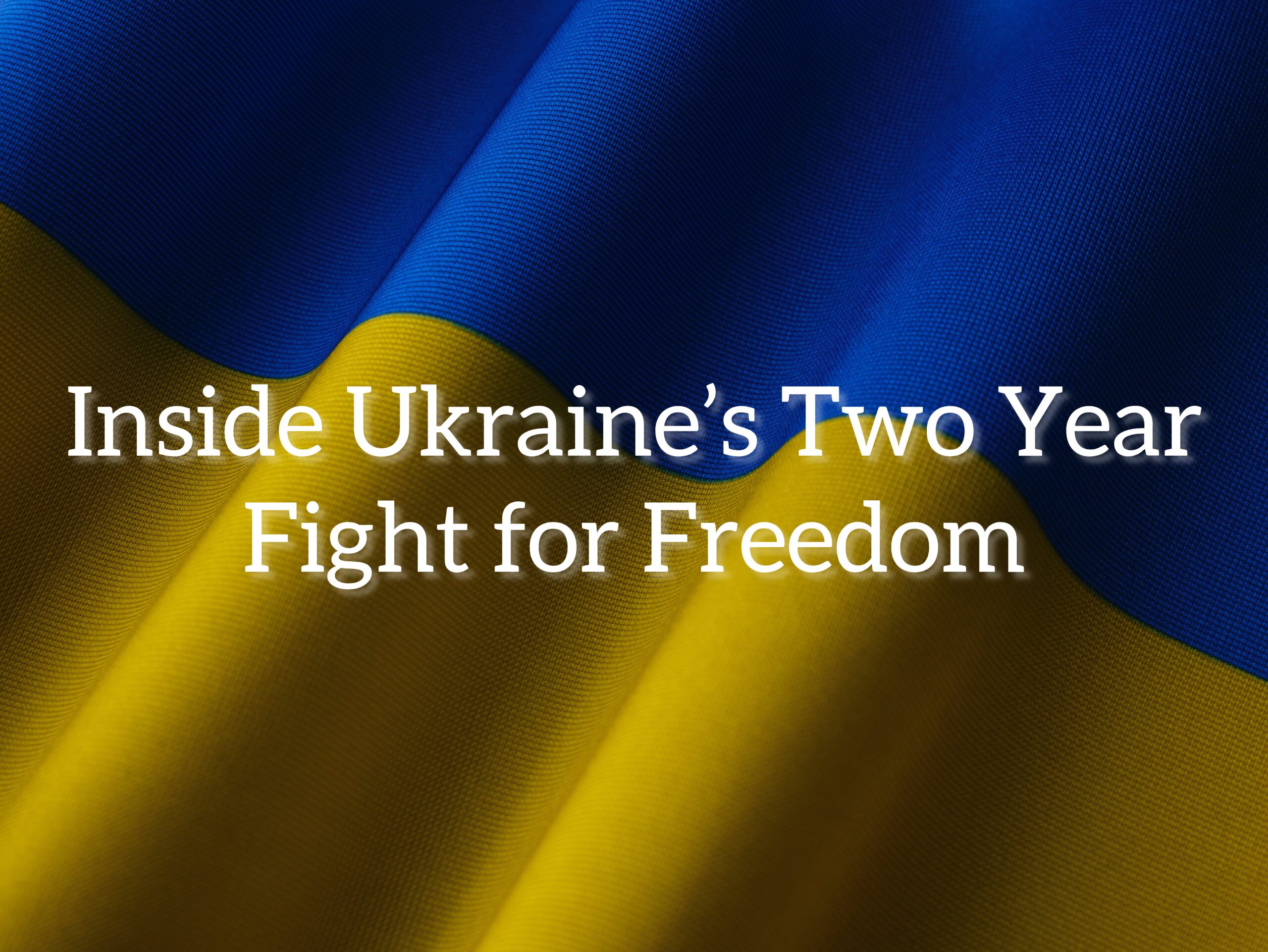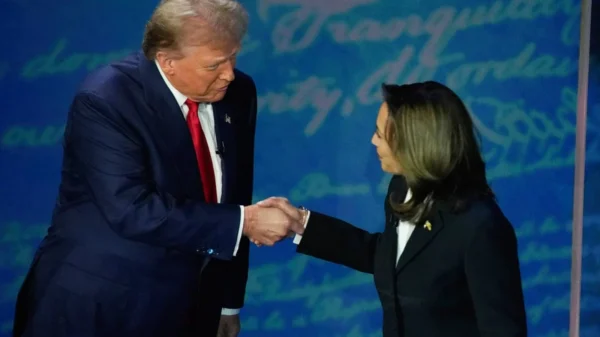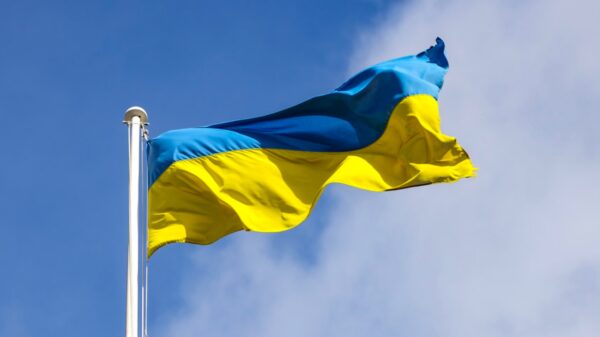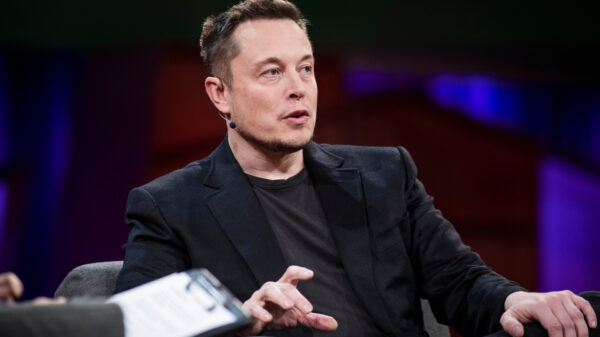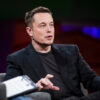On the two year anniversary of Russia’s invasion of Ukraine, Staff writer Rayhan Hussain recounts the key events of the conflict and gives an insight into where it may be heading.
You wouldn’t be blamed for believing that Russia’s war in Ukraine was no longer as severe as it once felt. It has dropped down all of our news cycles – particularly with the information sphere dominated by the Israel-Gaza conflict and the many elections taking place around the world this year.
But the war is still very much with us. Bombs continue to drop daily, destroying the homes and livelihoods of the Ukrainian people as the military assault spearheaded by the Kremlin persists. Exactly two years on, it is vital that we remember the ongoing battle for Ukraine’s freedom.
The Unyielding Conflict in Ukraine
The morning of Thursday 24 February 2022 will forever be etched in my mind as, like many, I woke up to news of explosions in the Ukrainian capital of Kyiv. Vladimir Putin had just authorised a ‘special military operation’ in Ukraine – or in other words – a full scale invasion. I couldn’t quite fathom the situation we were now in. The idea mire thought of war on continental Europe prompted a catalogue of concerns in my mind. This was notwithstanding the ‘forgotten war’ in Ukraine of 2014, with the annexation of Crimea and all of the untold damage that Putin was able to unleash.
Nobody could have foreseen what the following months would bring. Putin certainly could not have anticipated the Russian failure in capturing Kyiv within the first few days of the invasion. Nor could he have envisioned what much of the international community has been thinking – that the conflict is destined to run for the long-haul.
KCL Professors I’ve been speaking to suggested that the first year of the war was “a moment of excitement” for the West and the wider world. Events were changing at an enormously rapid pace. The UK, US, and its allies wilfully committed to supporting Ukraine no matter what. This came in the form of the barrage of sanctions targeted at businesses and individuals close to Putin, which initially sent shockwaves through the Russian economy. This was coupled with the billions promised to Ukraine in weapons and financial aid – perhaps part of a ‘two pronged’ strategy aimed at harming Russia’s ability to wage war.
Whilst the initial sanctions may have proved a hit to the rouble, it hasn’t stopped the Kremlin in continuing the fighting. The Russian economy has not been battered in the way that the West may have hoped, demonstrated by recent news of the IMF raising Russia’s growth outlook. It probably explains why, just yesterday, the US announced over 500 more sanctions against Russia. And earlier in the week, the UK also announced a further 50 sanctions ahead of the second anniversary of the war.
It is also important to mention the global impact the war has had. Whether you have been ingrained in every development of the last two years or not, the effects of this war have been felt a lot closer to home. Global inflation reached multi-decade highs across the globe, speared by the price of gas and energy shooting through the roof. This was felt not only by countries such as Germany (who were more reliant on Russian gas) but also further away. Here in the UK for example, the government unveiled a noteworthy £150 billion package to support households with rocketing energy bills.
Enhancing Ukraine’s strategic defence capabilities has also been of paramount importance to its war efforts over the last two years. The US is by far the top donor country, providing over $50 billion of military aid for weapons and equipment since the start of the conflict. Despite signs of tetchiness from certain corners of Capitol Hill around whether economic support should continue, the West have not thus far faltered. It perhaps reinforces the perception that initial sanctions have not had the desired effects prompting a scaling up of support for Ukraine.
A Journey of Resilience and Defiance
The human cost of the war has been staggering. This war of attrition has led to the loss of thousands of lives, with millions being displaced from their homes.
To all intents and purposes, the humanitarian crisis faced by the people of Ukraine emphasises their staggering resilience. And it is something that we, as an international community, have not appreciated enough.
Additionally, the pace of the war has witnessed a substantial shift. Clearly, things are not going the right way for either side and Zelensky’s recent reshuffle of the top brass of his military demonstrates Kyiv’s internal struggles.
Last summer’s failed counter offensive in the South is still discussed amongst commentators as a turning point. Involving six months of hard fighting, and mired in tussles between top American officials and their Ukrainian counterparts, it failed to bring about any major breakthroughs.
Its failure has led some to conclude that the counter-offensive was initiated too early, whilst others to convey the point that Ukraine simply lacked the military resources to really make an impact.
Indeed, sending untrained combatants into a warzone is never going to have the desired effects. And as progress has slowed, the massively high levels of unfulfilled expectations have weakened Zelensky’s pleas to the West for further support.
Zelensky as a Wartime Hero
What about the position of the President of Ukraine? Nobody can forget his military-style and khaki outfits – which have been plastered on our screens since the onset of the war. The symbolism of solidarity with his attire is not lost on anyone, particularly those fighting for Ukraine’s freedom. Moreover, it reinforces his position as not just a political leader, but also as a commander-in-chief who wants to be visibly aligned with those suffering.
On the international stage, Zelensky’s attire has undeniably helped to improve his standing as well as garner empathy and support for the Ukrainian cause. This sartorial statement communicates the gravity of the situation in Ukraine, serving as a constant reminder to international leaders that the war is far from over.
Today, Zelensky’s position is not as clear-cut due to attention rightly being diverted to the conflict in the Middle East. Whilst initially an asset as a wartime leader, the counter-offensive changed the dynamics of Zelensky’s leadership. The resignation of the head of the Ukrainian army is also a reflection of the change in personnel being directed by the President.
Remember too, elections in Ukraine are due to take place next month in this bumper year of worldwide voting. Over the last two years, Ukraine has solidified its position as a global political force. This will create a moment where the eyes of the world will be on Zelensky and examining how unified his political support truly is.
American Support Wavering?
I mentioned earlier how success in Ukraine’s defence capabilities is contingent on support from the West – and primarily from the United States. It is true to say that US support for Ukraine is continuing, evidenced by the $95 billion wartime aid package destined for Ukraine, Israel and Taiwan passed by the Senate a fortnight ago. Of this, Ukraine is set to be in receipt of $60 billion of that support to bolster and replenish its supply of weapons.
Though funding continues for now, the White House has accused Republicans in the House of Representatives, and the Speaker Mike Johnson, of failing to hold up their end of the bargain by not initiating a vote on the Senate approved package. This is despite the recent capture of Avdiivka, a key Ukrainian city now subject to Russian control after a tiresome battle and Ukrainian withdrawal from the territory. For some, the defeat in Avdiivka could demonstrate that US funds are being wasted in Ukraine or not being utilised effectively. Which, in turn, has led them to question as to why more money should be sent towards the war efforts.
Furthermore, Tucker Carlson enabling Putin to spread his propaganda machine across the world with barely any scrutiny highlights the wider concerns of Western governments. The content within the infamous interview was ultimately aimed at those already sceptical of continued American and international support for Ukraine.
More broadly, the picture in the US is looking bleak and uncertain. It is fundamentally clear that events which take place in the States have a direct effect on Ukraine’s ability to fight for its independence. This is notwithstanding the prospects of a second Trump presidency.
As one KCL academic suggested to me, Trump would be in a momentously strong position should he be re-elected later this year. With the backing of most of the Republican Party, he would have total control and the freedom to take decisions that cross borders.
Truth be told, nobody can get into the mind of a former president who looks almost certain to make the Republican ticket for November. However, one can only assume that he would push for renewed negotiation talks between the two countries. Last year, he bombastically claimed that he would have the ability to end the war between Russia and Ukraine in the first 24 hours of his second presidency.
Whichever way you look at it, a second Trump presidency not only has ramifications for Ukraine – but also sparks wider concerns for European security, with a fracturing within the NATO alliance, and the potential appeasement of Putin. Zelensky and his administration should undoubtedly begin preparing for this worrying prospect just as other European nations are.
Looking Ahead and Increased Concerns about Russia
As the conflict in Ukraine enters its third year, the situation remains dire. Prospects of a resolution that satisfy all sides remain bleak. Peace talks have not led to any prospects of a truce – with both sides holding firm to their positions.
The tragic killing of the prominent opposition leader Alexei Navalny whilst he was being held in a Russian jail last week underlines the immense concerns about Russia’s threat to the global order. His passing pushes the prospect of democracy in Russia further and further down the track, underscoring the dangerous climate for political dissent against Putin and his cronies.
Worryingly, it serves as a grim reminder of the lengths to which the Kremlin will go to silence its opposition. As The Economist fittingly noted, “whatever ends up on his death certificate, [Navalny] was killed by Vladimir Putin.”
One thing that is crystal clear for the next few weeks and months is that Ukraine cannot continue without the wealth and backing of other countries. And as the world commemorates two years since the invasion, it is a solemn reminder of the ongoing struggle for freedom, sovereignty, and Ukrainian independence.

